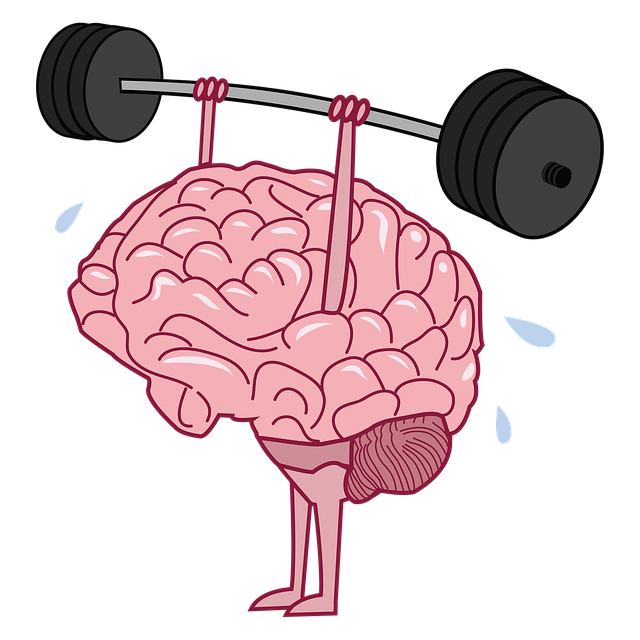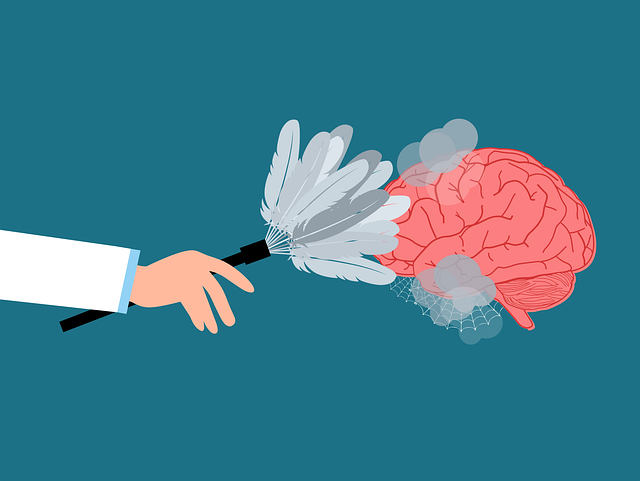In today's dynamic work environment, Crisis Intervention Teams (CITs) play a vital role in addressing "Golden Workplace Issues," especially job stress therapy. These teams promote proactive support and foster a culture where employees can manage distress and access mental health care. By identifying distress signs early, facilitating open communication, and providing immediate assistance or resource connections, CIT members empower colleagues to navigate challenging situations effectively. Integrating community outreach programs ensures access to outside support networks, emphasizing a holistic approach to job stress therapy. Effective CIT training incorporates Mind Over Matter principles, social skills training, and risk management planning, empowering both employees and professionals to manage stress through cognitive techniques and emotional regulation. Job Stress Therapy (JST) is a powerful solution taught in these programs, offering strategies for emotional regulation and mood management to cope with stressors like heavy workloads and tight deadlines. A holistic approach focusing on technical and soft skills equips teams to address Golden Workplace Issues with empathy and expertise, prepared to handle diverse challenging scenarios through simulations, role-playing, and case studies.
“In today’s fast-paced work environment, Crisis Intervention Team (CIT) training is becoming increasingly vital. This article explores the importance of CITs in supporting employees during stressful situations, focusing on identifying Golden Workplace Issues that commonly cause distress. We delve into effective Job Stress Therapy techniques to enhance intervention skills. Additionally, we provide strategies for designing comprehensive training programs, ensuring professionals are equipped to handle real-world crisis scenarios.”
- Understanding Crisis Intervention Teams: A Cornerstone of Employee Support
- Golden Workplace Issues: Uncovering Common Stressors and Triggers
- Job Stress Therapy: Techniques for Effective Intervention
- Designing Comprehensive Training Programs: Strategies for Real-World Application
Understanding Crisis Intervention Teams: A Cornerstone of Employee Support

In today’s fast-paced work environment, understanding and implementing effective Crisis Intervention Teams (CITs) is more crucial than ever. These specialized teams serve as a cornerstone in addressing Golden Workplace Issues, such as job stress and related therapy needs. By integrating CITs into organizational structures, companies can foster a supportive atmosphere where employees feel empowered to navigate challenging situations.
Crisis intervention is not just about responding to acute events; it’s also about proactive mood management and trauma support services. Well-trained CIT members can identify early signs of distress among colleagues, facilitate open communication, and provide immediate assistance or connect individuals with appropriate resources. Moreover, a successful CIT program often involves community outreach program implementation, ensuring that employees have access to comprehensive mental health care and support networks beyond the workplace.
Golden Workplace Issues: Uncovering Common Stressors and Triggers

In every workplace, there are common stressors and triggers that can lead to significant mental health challenges among employees. These so-called “Golden Workplace Issues” encompass a range of factors unique to different environments but often manifest in similar ways, affecting overall well-being. For instance, demanding workloads, high-pressure deadlines, and lack of work-life balance are prevalent concerns across various industries. Additionally, issues like workplace bullying, toxic work cultures, or even the silence surrounding mental health can significantly contribute to job stress. Understanding these Golden Workplace Issues is a crucial step in developing effective crisis intervention team training programs.
The concept of Mind Over Matter principles plays a pivotal role here. By teaching employees and mental health professionals alike to manage stress through cognitive techniques, relaxation practices, and emotional regulation strategies, organizations can create a more resilient workforce. Social skills training and risk management planning are also essential components in addressing these issues. These tools enable crisis intervention teams to provide tailored support while fostering an environment where open conversations about mental health are encouraged, reducing the stigma associated with seeking help.
Job Stress Therapy: Techniques for Effective Intervention

In crisis intervention team training programs, Job Stress Therapy (JST) stands out as a potent tool for addressing Golden Workplace Issues and job stress. JST focuses on teaching individuals effective techniques to manage and reduce workplace stress, fostering a healthier emotional regulation and mood management. The program equips participants with strategies to recognize and cope with common stressors like heavy workloads, tight deadlines, and interpersonal conflicts, which are often the root causes of many workplace crises.
Through interactive workshops and role-play scenarios, JST training delves into various stress reduction methods tailored to professional settings. These include mindfulness techniques, such as guided meditation and deep breathing exercises, designed to help individuals quickly calm their minds and regain composure during stressful situations. Additionally, the program explores cognitive behavioral therapy (CBT) strategies for challenging negative thoughts and replacing them with more positive, realistic perspectives, thereby enhancing overall emotional resilience in the workplace.
Designing Comprehensive Training Programs: Strategies for Real-World Application

Designing comprehensive crisis intervention team training programs requires a multifaceted approach to prepare professionals for real-world applications. These programs should address not just technical skills but also the soft skills essential for effective support, such as self-esteem improvement and compassion cultivation practices. By integrating these elements, teams can better navigate Golden Workplace Issues and Job Stress Therapy scenarios with empathy and expertise.
Real-world application is a key component of effective training. Simulations, role-playing exercises, and case studies should be employed to expose participants to diverse crisis situations. This allows for the development of crisis intervention guidance that translates into practical solutions in high-pressure environments. Through ongoing practice and feedback, team members can refine their responses, ensuring they are equipped to handle a range of challenging workplace issues.
Crisis intervention team training programs are invaluable in equipping organizations with the tools to address Golden Workplace Issues and provide effective Job Stress Therapy. By understanding the common stressors and triggers that lead to crises, and employing evidence-based techniques, these teams can significantly enhance employee well-being and productivity. Comprehensive training that includes real-world application strategies ensures that interventions are not only timely but also effective, fostering a healthier and more resilient workplace environment.














